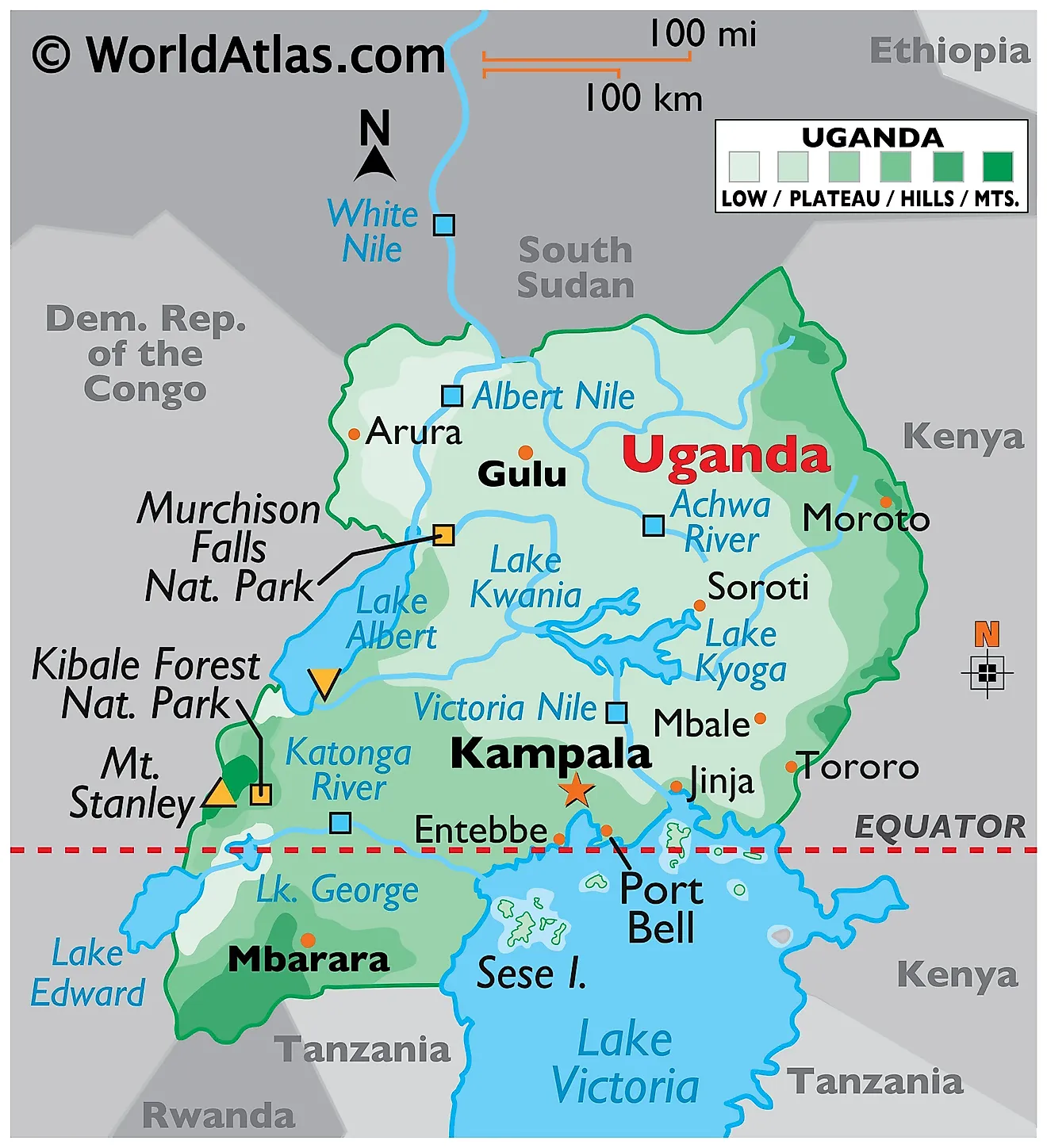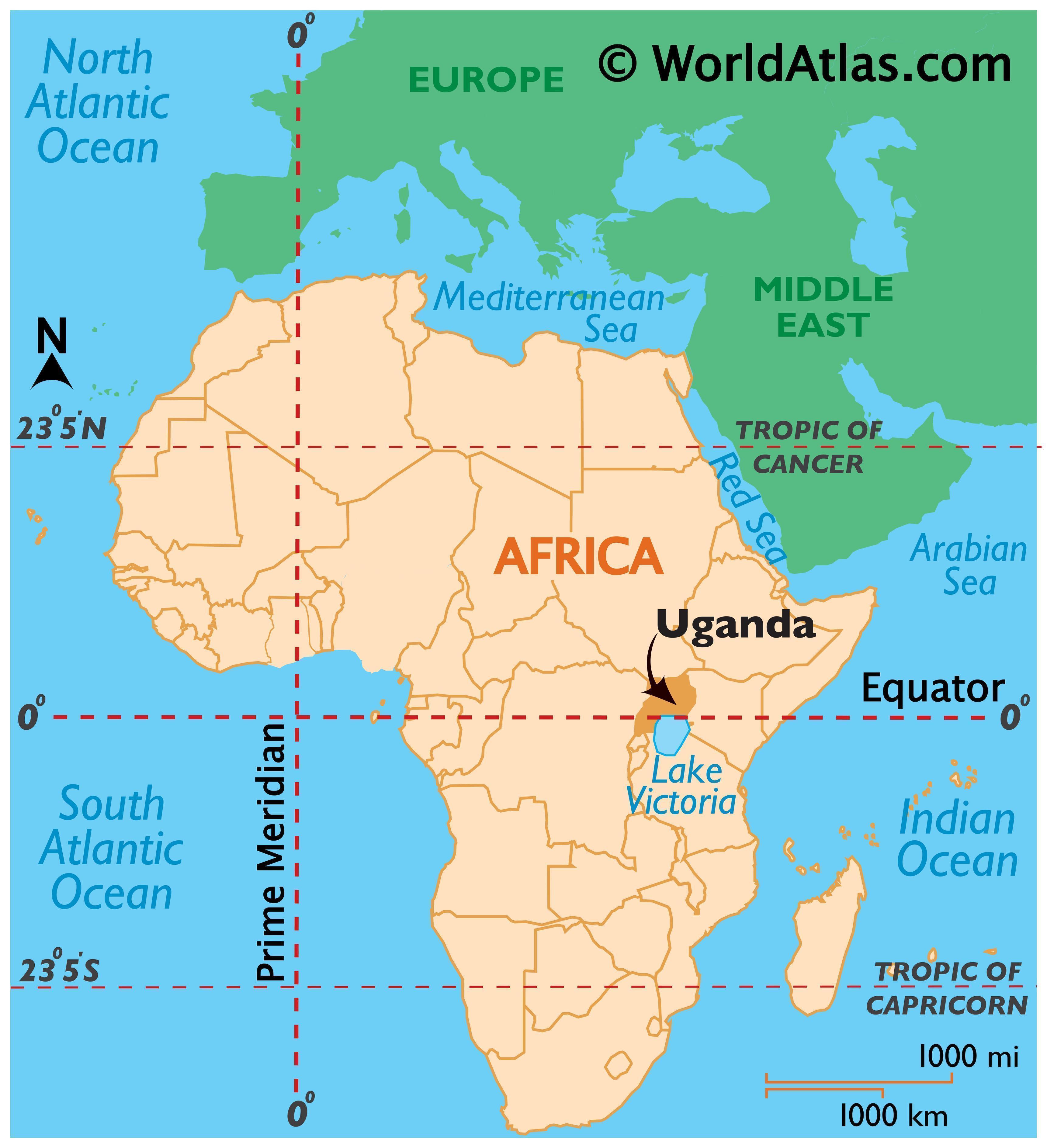Discovering Uganda: A Vibrant Land Of Culture, Wildlife, And Adventure
Uganda, often referred to as the "Pearl of Africa," is a country that captivates travelers with its stunning landscapes, rich biodiversity, and vibrant culture. Nestled in East Africa, this landlocked nation boasts everything from snow-capped mountains to sprawling savannahs, lush rainforests, and the source of the mighty Nile River. Visitors are drawn to Uganda not only for its natural beauty but also for its warm hospitality and diverse traditions. Whether you're an adventurer, a wildlife enthusiast, or someone seeking cultural immersion, Uganda offers a unique experience that leaves a lasting impression.
From the misty peaks of the Rwenzori Mountains to the vast plains of Queen Elizabeth National Park, Uganda is a treasure trove of natural wonders. The country is home to over half of the world's remaining mountain gorillas, making it a top destination for gorilla trekking. Beyond its wildlife, Uganda's cultural diversity is equally fascinating, with over 50 indigenous tribes contributing to its vibrant tapestry of languages, music, and art. This blend of nature and culture makes Uganda a must-visit destination for global travelers.
Uganda's appeal extends beyond its tourist attractions. The country has made significant strides in recent years, particularly in areas like education, healthcare, and infrastructure development. Despite challenges, Uganda's resilience and progress are evident in its growing economy and the optimism of its people. Whether you're planning a trip, researching its history, or simply curious about this East African gem, Uganda has something to offer everyone.
Read also:Sophie Rain Ero Me A Comprehensive Guide To Understanding Her Impact And Influence
Table of Contents
- Why Visit Uganda?
- What Makes Uganda Unique?
- Exploring Uganda's Wildlife
- Who Are Uganda's Indigenous Tribes?
- How to Plan Your Trip to Uganda?
- Uganda's Cultural Heritage
- Why Is Uganda Called the "Pearl of Africa"?
- What Are Uganda's Top Tourist Attractions?
- Uganda's Role in East Africa
- How Can You Support Uganda's Community?
Why Visit Uganda?
Uganda is a destination that offers a little something for everyone. For nature lovers, the country's national parks provide unparalleled opportunities to witness wildlife in their natural habitats. From the endangered mountain gorillas in Bwindi Impenetrable Forest to the tree-climbing lions of Queen Elizabeth National Park, Uganda is a haven for wildlife enthusiasts. Adventure seekers can explore the Rwenzori Mountains, go white-water rafting on the Nile, or embark on a safari through the savannahs.
What Makes Uganda Unique?
Uganda stands out for its incredible biodiversity and cultural diversity. The country is one of the few places in the world where you can encounter both savannah and forest ecosystems within a short distance. Its unique geographical position also makes it a birdwatcher's paradise, with over 1,000 bird species recorded. Additionally, Uganda's cultural richness is reflected in its music, dance, and traditional crafts, which vary significantly from one region to another.
Exploring Uganda's Wildlife
Uganda is a wildlife enthusiast's dream come true. The country is home to some of Africa's most iconic animals, including elephants, giraffes, hippos, and chimpanzees. Gorilla trekking in Bwindi Impenetrable National Park is one of the most sought-after experiences, allowing visitors to observe these majestic creatures up close in their natural habitat. The park is also a UNESCO World Heritage Site, highlighting its global significance.
Who Are Uganda's Indigenous Tribes?
Uganda is home to over 50 indigenous tribes, each with its own language, traditions, and way of life. Some of the most well-known tribes include the Baganda, Banyankole, and Karamojong. These tribes contribute to the country's cultural diversity and offer visitors a chance to learn about their unique customs and traditions. Below is a table highlighting some key details about these tribes:
| Tribe | Region | Language | Notable Tradition |
|---|---|---|---|
| Baganda | Central Uganda | Luganda | Kiganda music and dance |
| Banyankole | Western Uganda | Runyankole | Cattle rearing and milk culture |
| Karamojong | Northeastern Uganda | Ngakaramojong | Nomadic pastoralism |
How to Plan Your Trip to Uganda?
Planning a trip to Uganda requires careful consideration of several factors, including the best time to visit, visa requirements, and travel logistics. The dry seasons, from December to February and June to August, are ideal for wildlife safaris and gorilla trekking. Visitors should also ensure they have the necessary vaccinations and travel insurance before embarking on their journey.
Uganda's Cultural Heritage
Uganda's cultural heritage is deeply rooted in its history and traditions. The country has a rich tapestry of music, dance, and storytelling that has been passed down through generations. Traditional ceremonies, such as weddings and coronations, are vibrant affairs that showcase the country's cultural diversity. Visitors can experience these traditions firsthand by attending local festivals or visiting cultural villages.
Read also:Retro Bowl Unblocked The Ultimate Guide To Playing The Classic Game Anytime Anywhere
Why Is Uganda Called the "Pearl of Africa"?
The phrase "Pearl of Africa" was coined by Winston Churchill during his visit to Uganda in the early 20th century. He was captivated by the country's breathtaking landscapes, diverse wildlife, and friendly people. Uganda's natural beauty, combined with its cultural richness, makes it a shining gem in the heart of Africa.
What Are Uganda's Top Tourist Attractions?
Uganda offers a wide range of attractions that cater to different interests. Some of the top tourist destinations include:
- Bwindi Impenetrable National Park
- Queen Elizabeth National Park
- Murchison Falls National Park
- Source of the Nile
- Rwenzori Mountains
Uganda's Role in East Africa
Uganda plays a significant role in the East African region, both economically and politically. The country is a member of the East African Community (EAC) and has been actively involved in regional trade and cooperation. Its strategic location and abundant natural resources make it a key player in the region's development.
How Can You Support Uganda's Community?
Travelers can contribute to Uganda's development by supporting local businesses, such as lodges, restaurants, and tour operators. Purchasing handmade crafts and souvenirs from local artisans also helps empower communities. Additionally, volunteering with local NGOs or participating in community-based tourism initiatives can make a meaningful impact.
In conclusion, Uganda is a country that offers endless opportunities for exploration and discovery. Its natural beauty, cultural diversity, and warm hospitality make it a destination worth visiting. Whether you're planning a trip or simply want to learn more about this remarkable country, Uganda has much to offer and is sure to leave you inspired.
Ajax: Unveiling The Power Of Asynchronous Web Development
Understanding NIPSCO: Your Ultimate Guide To Reliable Energy Solutions
Roma: A Timeless Journey Through History, Culture, And Modernity

Uganda Maps & Facts World Atlas

Uganda Map / Geography of Uganda / Map of Uganda